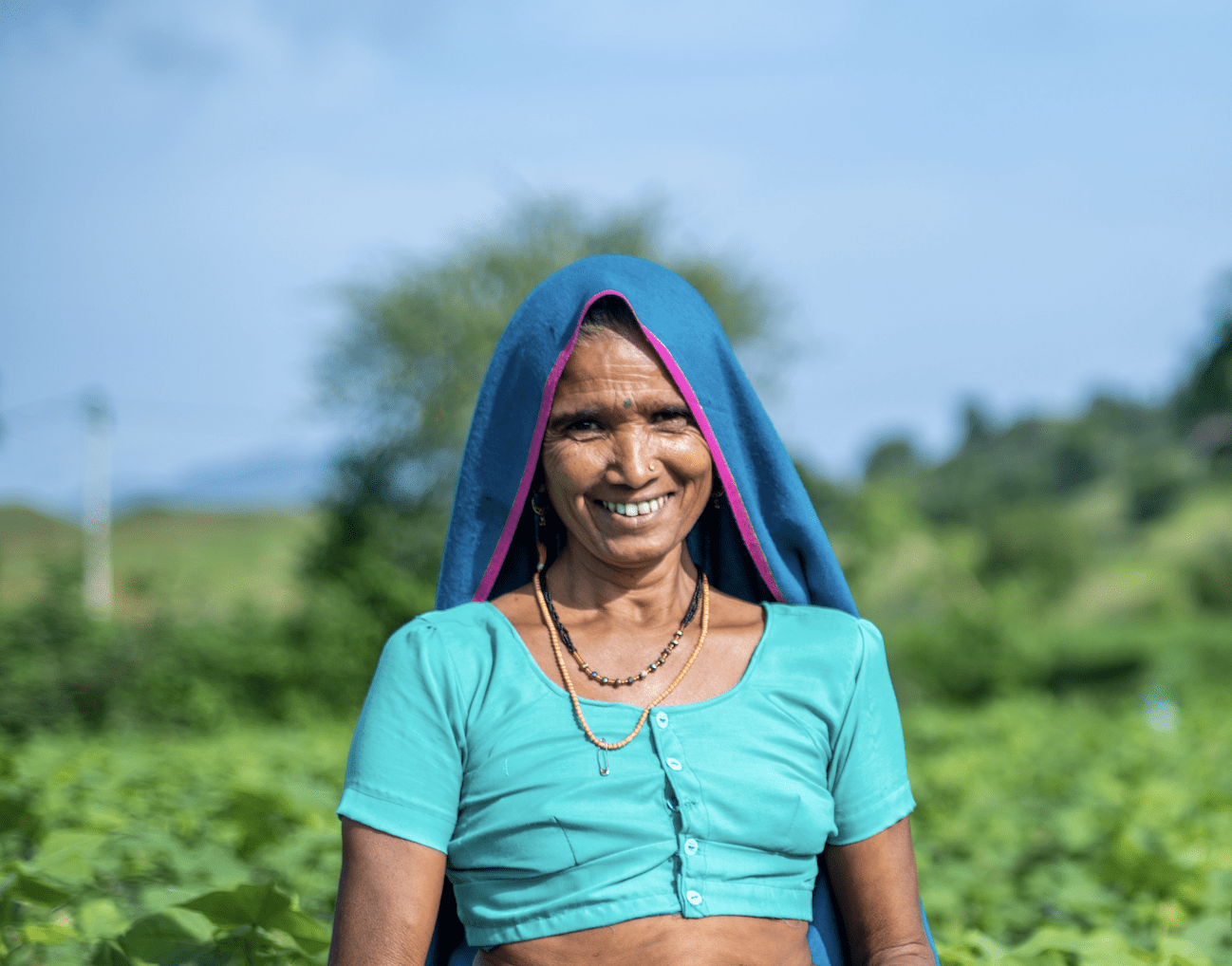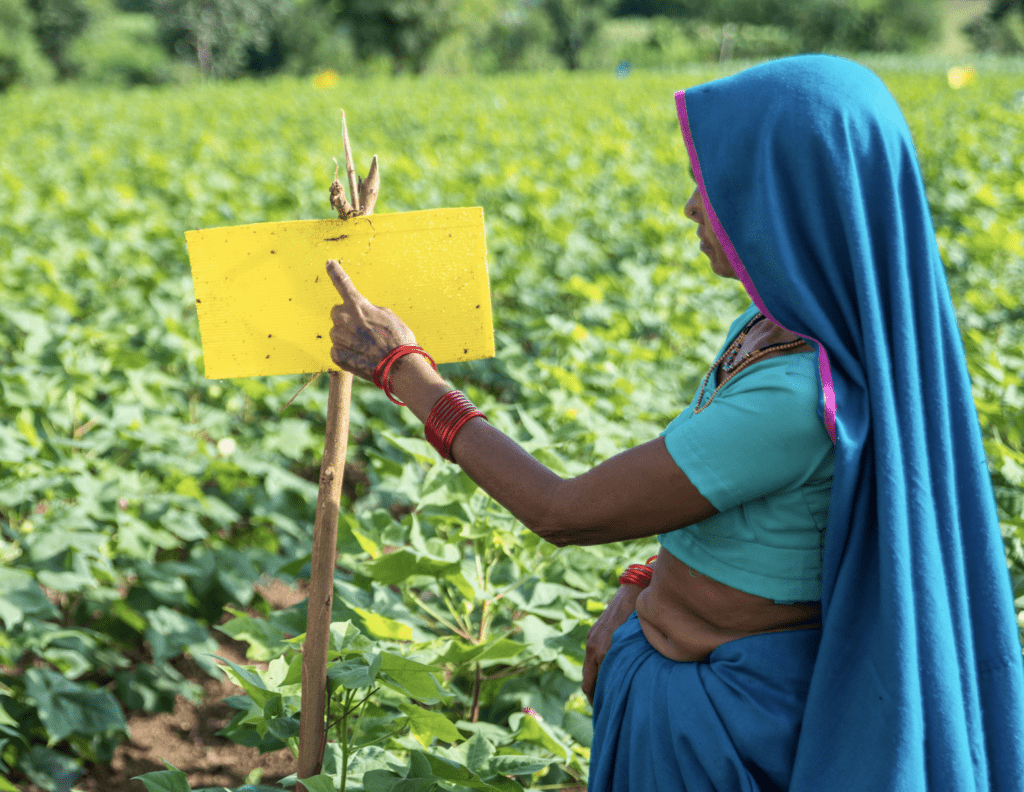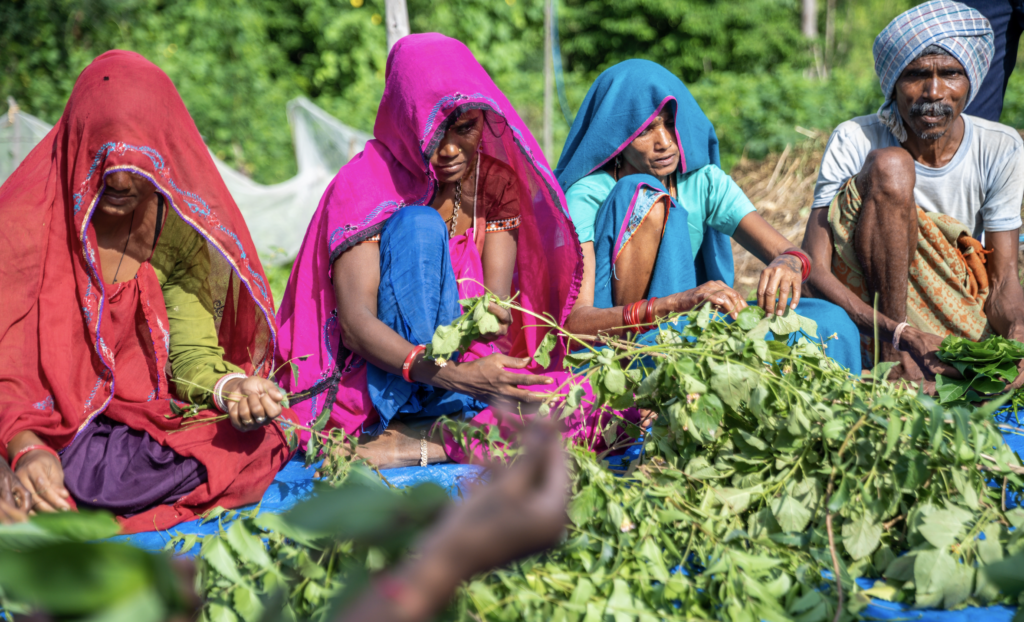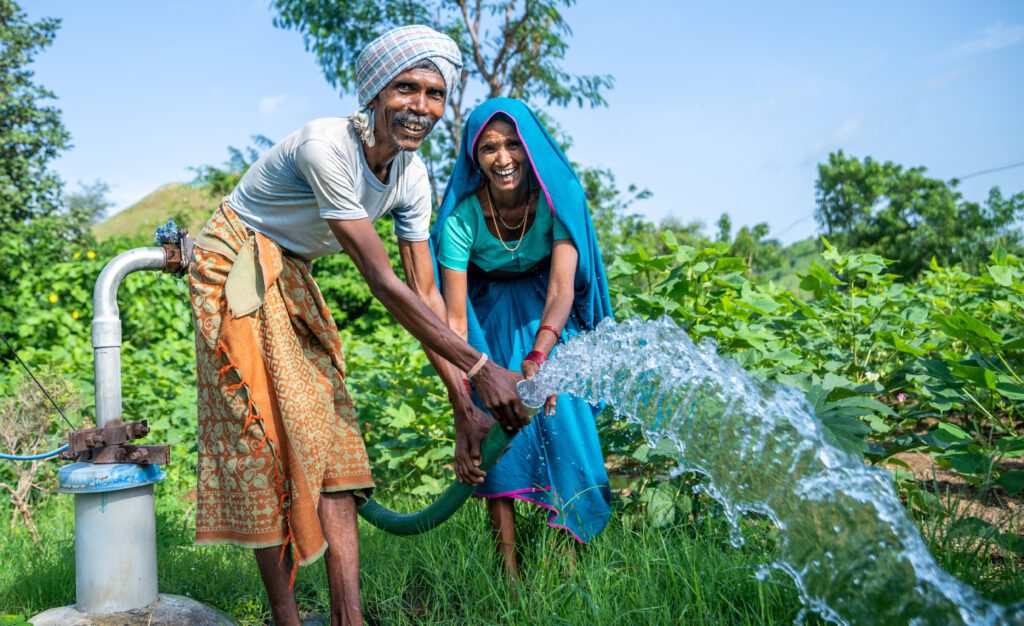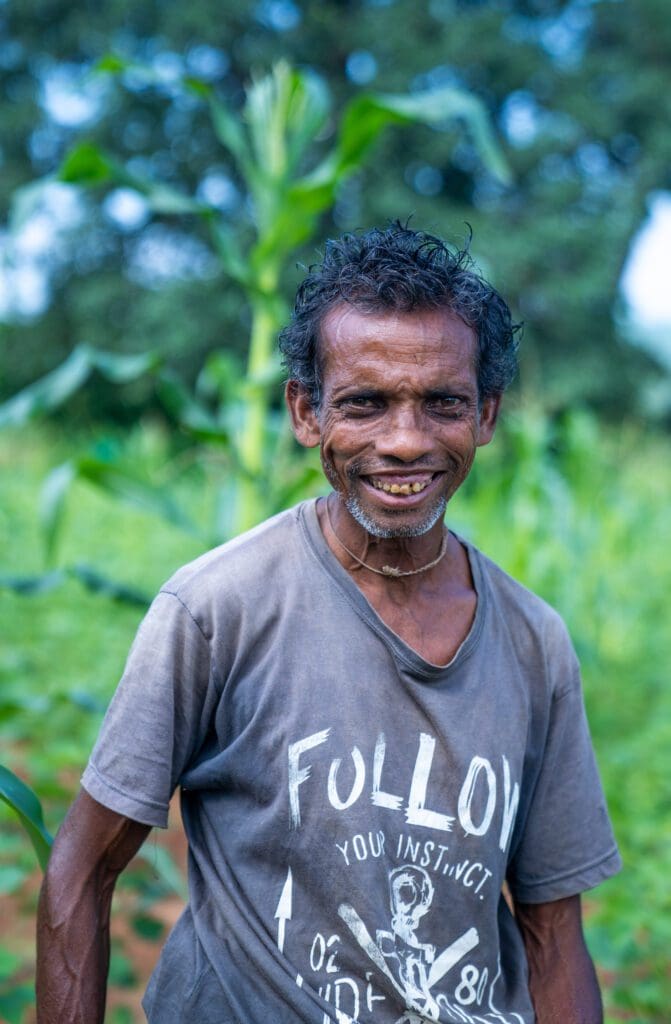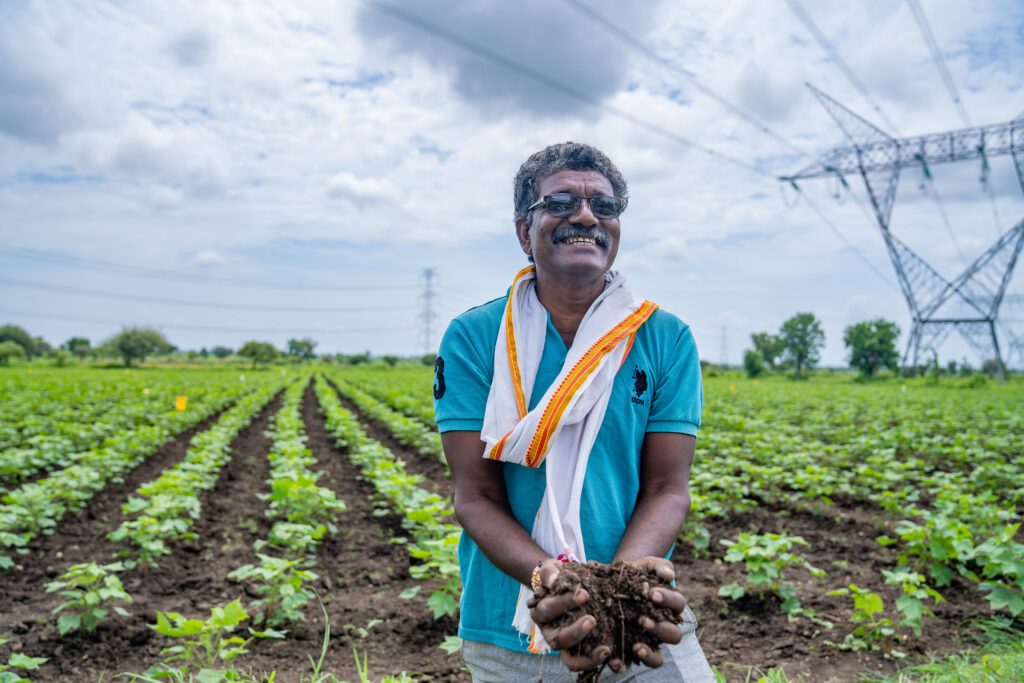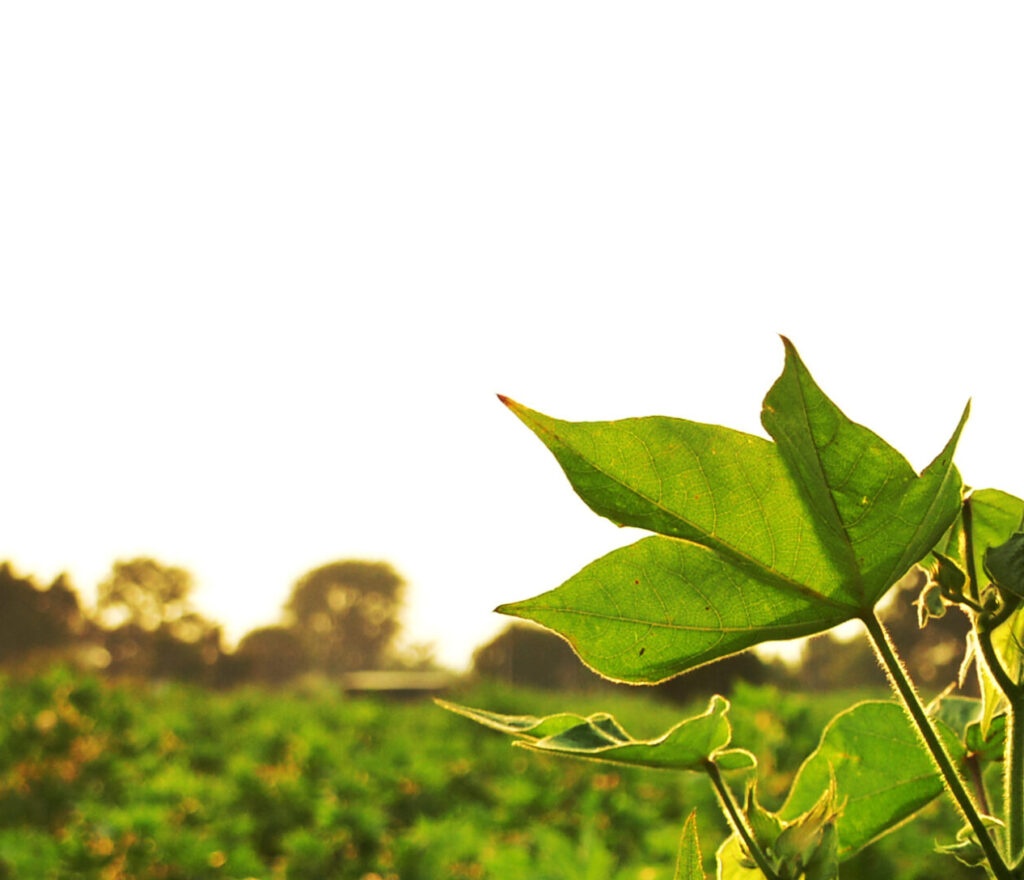 India
India In the heartland of Madhya Pradesh, where agriculture is both a way of life and livelihood, Kerli Estariya stands out as a beacon of change. An active in-conversion farmer and a member of the Women Farmer Producer Organization (FPO), Kerli has embarked on a journey from conventional to organic farming, ushering a wave of positive change in her community.
Hailing from a family deeply entrenched in conventional farming practices, where chemical pesticides and fertilizers were the norm for over two decades, Kerli and her family found their perspectives shifting when they crossed paths with the OCA Implementing Partner (IP) and the prospect of transitioning to organic farming began to take root.
For Kerli’s family, cotton cultivation had long been the linchpin of their income, supporting her husband, son, daughter-in-law, and three grandchildren. However, over the years, their vital income dwindled due to unforeseen decreases in yield. The excessive use of pesticides had also taken its toll on the soil’s fertility.
Thanks to the dedicated field staff at OCA, Kerli’s family received invaluable training on organic farming practices, as well as the preparation of bio-fertilisers and pesticides. In the current season, the OCA Implementing Partner supplied bio-inputs free of cost and pre-financed seeds at subsidized rates, providing a lifeline for the transition. Organic fertilsers were sourced from the farmyard manure generously provided by their 18 livestock.
Kerli manages 2 acres (0.8 hectares) of land, a typical holding size for cotton farmers, where she cultivates organic cotton. During the Kharif season, she also dedicates 0.5 acres (0.2 hectares) to jowar crops, with red gram as an intercrop, while the Rabi season sees the entire land adorned with wheat. Access to a bore-well on the property provides the much-needed irrigation.
In the 2021-22 cotton growing season, Kerli achieved a harvest of 700 kg of seed cotton, with 470 kg being sold to the IP and the remainder in the open market. The income from the cotton sold to the IP amounted to 36,778 INR (434 Euros), along with a premium of 4,133 INR (49 Euros). In total, her gross income from cotton, including sales in the open market, reached 56,065 INR (663 Euros). After accounting for expenses, Kerli realised a net income (excluding family labour costs) of 23,832 INR (282 Euros). The inclusion of wheat and jowar increased her family’s income by an additional 31,000 INR (366 Euros), and the milk from her cattle was reserved for her family’s consumption.
Kerli’s experience with organic farming has inspired her to extend the transition to other crops, citing the benefits for her family’s health. Her primary concern remains the availability of quality organic seeds, a challenge in her region. She also advocates for an increase in the premium paid for organic produce.
Reflecting on her first year of converting to organic farming, Kerli shares her thoughts, “The low cost of cultivation, coupled with the unwavering support from the OCA Implementing Partner—ranging from the provision of free bio-inputs to subsidized non-GM seeds, premium payments, and immediate sale proceeds for seed cotton—have been the driving forces behind our decision to join the Women Farmer Producer Organization and look toward a future of complete organic farming.”
Kerli Estariya’s journey is not just one of personal change but a testament to the power of sustainable agriculture in revitalizing communities and ecosystems. Her story serves as an inspiration for all who aspire to nurture the land and secure a healthier future for generations to come.
